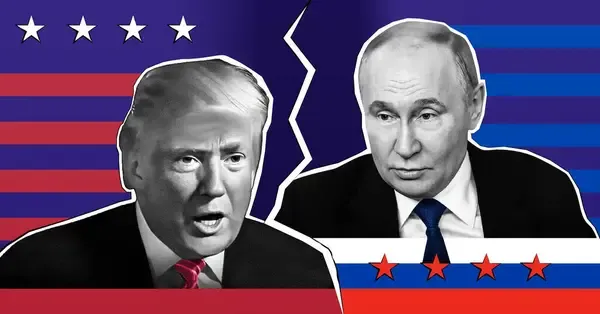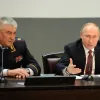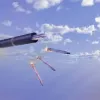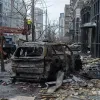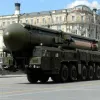Putin challenges NATO to a duel: Kremlin says - point us to a target in Kyiv, and we will strike with Oreshnik
The war in Ukraine, already brimming with complexity and tension, has taken an unexpected theatrical turn. Russian President Vladimir Putin has proposed what can only be described as a bold and unusual challenge to NATO.
His plan? To test the limits of Western defense systems by pitting Russia’s advanced Oreshnik missile against them.
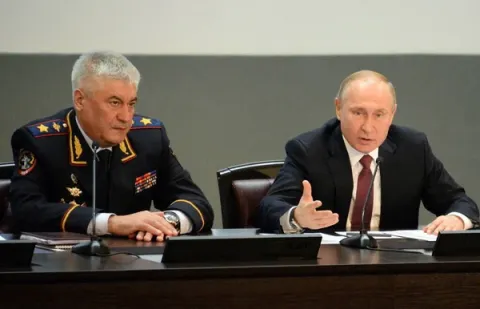
A modern duel or a distraction?
Putin’s challenge has the flair of a medieval tournament—complete with a chosen battlefield and a weapon to demonstrate power.
"Point us to a target in Kyiv," the Kremlin says, "and we will strike with Oreshnik."
It’s hard not to imagine this as a bizarre technological joust, with missiles instead of lances.
“We are ready for such an experiment,” Putin declared, delivering the line with the confidence of a seasoned chess player daring their opponent into a risky move.
Yet, this theatrical proposition begs the question: why now?
Is this a demonstration of strength, or a distraction from something more pressing?
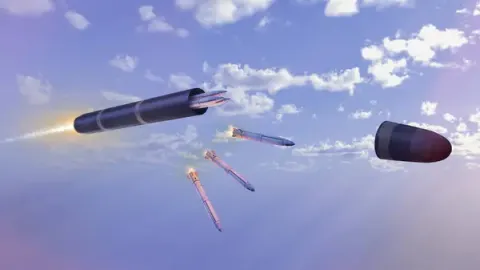
Oreshnik: Russia’s ace or an empty boast?
According to Putin, Oreshnik is not just another missile but a revolutionary weapon, capable of striking targets up to 5,500 kilometers away.
He portrays it as a crowning achievement of Russian engineering—a missile no Western defense system can intercept.
Western analysts, however, are less convinced.
“It’s not about the missile itself,” remarked one defense expert, “but about the narrative Russia is trying to build around it.” The real power of Oreshnik may lie in its symbolism—a way for the Kremlin to assert its technological prowess and shift attention from the battlefield to the skies.
NATO’s predicament: to respond or not?
Putin’s proposal places NATO in a tricky spot. Engaging with the challenge risks legitimizing Russian propaganda and escalating tensions. Ignoring it, on the other hand, might make the alliance appear indecisive or unprepared.
It’s a dilemma that feels straight out of the Cold War playbook.
For Britain, this poses questions not just about NATO’s collective strategy but about its own role.
Will the UK continue to stand firm in supporting Ukraine while navigating the challenges of this increasingly provocative rhetoric? The stakes aren’t just military—they’re political and economic as well.
An economy under strain
In tandem with his military provocations, Putin painted a rosy picture of Russia’s economy.
Claiming a potential 4% GDP growth this year, he framed the country as resilient in the face of sanctions. He highlighted programs like “maternity capital” and low-interest mortgages as evidence of stability.
But on the ground, the story looks different. Independent economists point to shrinking foreign investment, volatile currency rates, and rising costs associated with the war. As one British observer put it, “Putin’s numbers sound good in speeches, but they don’t pay the bills.”
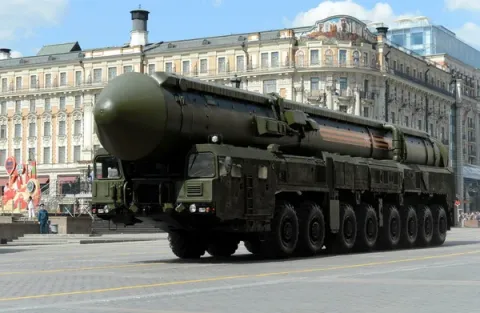
Belarus and BRICS: A shield and a signal
Belarus remains a central piece of Russia’s geopolitical puzzle. Putin reiterated that any threat to Minsk would be treated as a threat to Moscow itself—a message aimed squarely at NATO.
This deepening alliance serves as both a defensive strategy and a warning to the West.
Meanwhile, Putin’s promotion of BRICS as a counterbalance to Western alliances shows another side of Russia’s strategy.
The bloc’s expanding influence offers Moscow a platform to project power without direct confrontation, although it remains to be seen how much practical support it can deliver.
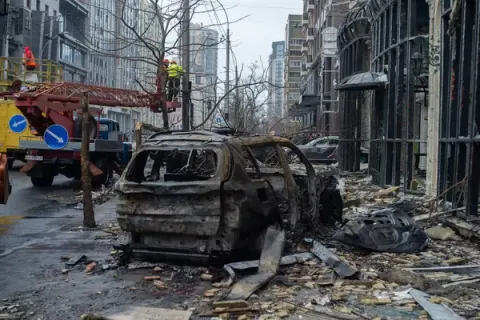
A spectacle with calculated risks
At its core, Putin’s challenge is as much about optics as it is about strategy.
By focusing on Oreshnik, the Kremlin shifts the narrative from setbacks in Ukraine to a more grandiose stage.
For Russians, it reinforces the image of a nation standing tall against Western aggression.
For the West, it’s a reminder that the Kremlin still knows how to play the game of psychological warfare.
As Britain and its NATO allies watch this unfold, one question looms large: how to respond without falling into the trap of legitimizing such theatrics?
The answer may define the next phase of this already complex conflict.
What lies ahead?
The duel Putin envisions may never take place, but its echoes are already reverberating.
NATO must now decide whether to call Russia’s bluff or sidestep the challenge entirely.
Meanwhile, the world waits, as this peculiar standoff plays out like a high-stakes chess match with no clear winner in sight.
